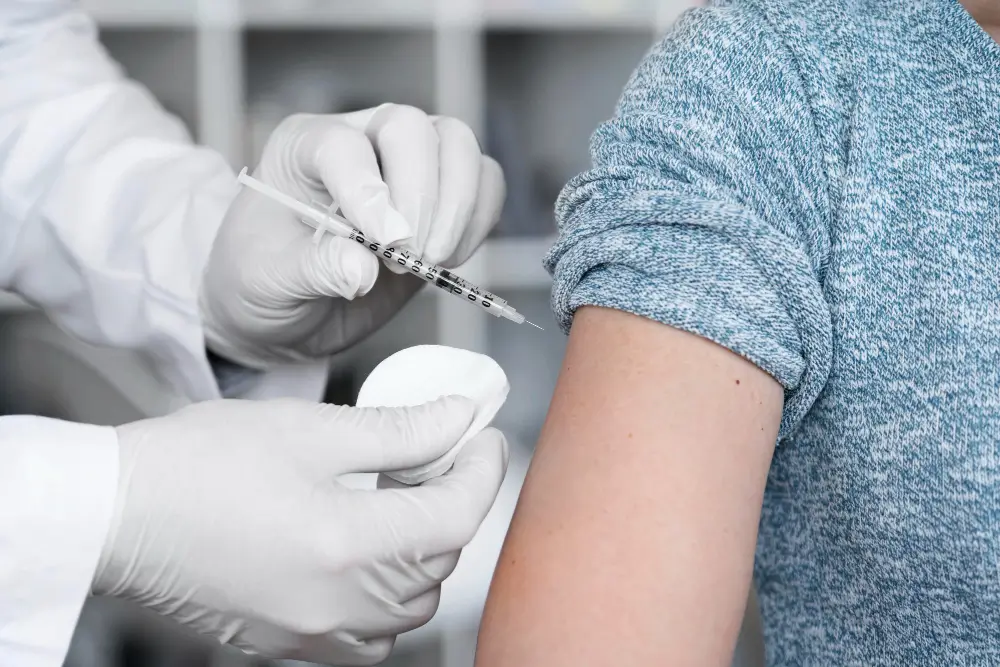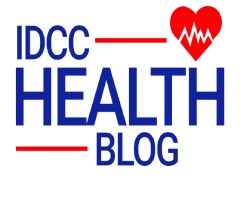Can HPV Be Cured with Antibiotics? What You Need to Know
When it comes to common infections, most people immediately think of antibiotics as the solution. But what about HPV? Many wonder, can hpv be cured with antibiotics, or is the treatment approach completely different? The truth may surprise you, especially since HPV behaves in ways that set it apart from other infections. Before assuming a prescription holds the answer, let’s uncover what really works.
TL;DR
HPV is a viral infection, not treatable with antibiotics. While it often causes no symptoms, it can lead to genital warts, precancerous changes, or cancers. Antibiotics are ineffective because HPV invades living cells, and the immune system typically clears it within 1–2 years. Current treatments focus on managing lesions (creams, cryotherapy, laser, surgery) and monitoring high-risk cases. The most effective strategy is prevention through HPV vaccination, safer sexual practices, and regular screenings.
Consult an HPV specialist NYC for accurate diagnosis and care.

What Is HPV and How Does It Affect Your Health?
The human papillomavirus (HPV) is one of the most common sexually transmitted infections worldwide. It spreads mainly through vaginal, anal, or oral sexual contact and can affect the skin and mucous membranes. There are more than 200 genotypes of HPV, with only about 15 considered high-risk because of their link to various cancers.
In many cases, HPV does not cause visible symptoms. Still, some people may develop:
- Genital warts
- Abnormal cell changes detected through Pap tests
- Precancerous lesions
- Cancers such as cervical, vulvar, vaginal, penile, and oropharyngeal cancer
High-risk types of HPV cause around 3% of cancers in women and 2% in men. Globally, HPV is responsible for nearly all cervical cancer cases.
Early detection remains essential for proper management and lowering the risk of complications.
Why Antibiotics Can’t Cure HPV: Understanding the Virus
Antibiotics do not work against HPV because they are designed to fight bacterial infections. Bacteria are organisms that live and multiply independently. Antibiotics act on them by blocking their growth or reproduction, which helps the body eliminate them.
Viruses like HPV are much smaller and cannot survive on their own. They must invade living cells and use the host’s machinery to reproduce. For this reason, antibiotics have no effect on them.
How HPV affects the body
Medical treatment does not aim to eliminate the virus directly but to address the visible consequences of the infection, such as:
- Genital warts
- Abnormal cells found in medical check-ups
- Precancerous lesions
The main goal is to manage the effects of the virus and prevent complications, not to destroy it with antibiotics.
How Does the Immune System Play a Role in HPV Clearance?
The immune system is the body’s main defense for eliminating HPV. In most cases, it can identify and neutralize the virus within 1 to 2 years. Since no specific medication exists to clear HPV directly, success depends on how well the immune system controls and resolves the infection.
| Process Stage | Main Function |
| Virus Detection | Identification of viral particles by immune cells |
| Initial Immune Response | Early neutralization to limit the progression of the infection |
| Antibody Production | Creation of specific defenses against HPV |
| Infection Control | Blocking viral replication and protecting new cells |
| Weakening Factors | Smoking, diseases, or other conditions that reduce immune effectiveness |
Smoking, illnesses, or other conditions can weaken the immune system, increasing the risk of persistent infection and complications such as precancerous lesions or cancer.
A strong immune system helps avoid serious outcomes. Healthy lifestyle choices make a difference between a temporary infection and one that poses long-term risks.
What Are the Current Treatments for HPV-Related Health Issues?
There is no treatment that directly eliminates HPV. Medical approaches focus on treating the lesions it causes and preventing new infections through vaccination and lifestyle measures.
Managing genital warts
- Immunomodulator creams
- Cryosurgery
- Laser treatment
- Surgical removal
These options target visible lesions but do not eradicate the virus.
Managing high-risk lesions
- Monitoring with Pap tests and biopsies to detect precancerous changes
- For high-grade lesions, cervical conization (removal of affected tissue) may be necessary
- For persistent low-grade lesions, laser vaporization can be used
- Cryotherapy or laser therapy are also valid options for destroying lesions
- Repeated invasive procedures may affect fertility, so they are avoided when possible.
Combining medical monitoring, local treatments, and healthy habits is the most effective way to reduce complications.
Prevention and Vaccination: The Best Way to Manage HPV
The best strategy against HPV is prevention, since no curative treatment exists. The HPV vaccine is the most effective tool to lower the risk of infection and serious complications, including several types of cancer.
The HPV vaccine
- Who should get it: Recommended mainly for children aged 9–12 before sexual activity begins. It can also be given up to age 26, and between 27–45 based on medical advice.
- Effectiveness: Prevents more than 90% of HPV-related cancers, including cervical, anal, penile, vulvar, and throat cancers.
- Dosing schedule:
- 2 doses if administered before age 15
- 3 doses for adults or immunocompromised individuals
Other preventive measures
- Condom use: Latex condoms reduce the risk of infection but do not provide complete protection.
- Abstinence: The only method that fully prevents infection.
- Monogamy: Exclusive sexual relationships reduce exposure risk.
- Screenings: For women, Pap smears and HPV testing help detect precancerous cells early, before they develop into cervical cancer.
HPV vaccination, combined with safe sexual practices and regular check-ups, is the most effective way to lower the risk of infection and related complications.
Key Takeaways
- Nature of HPV:
- HPV is one of the most common sexually transmitted infections worldwide.
- Spread occurs through vaginal, anal, or oral sex, affecting skin and mucous membranes.
- Over 200 genotypes exist; about 15 are high-risk and linked to cancers.
- Health Impact:
- Often asymptomatic, but can cause genital warts, abnormal cervical cells, precancerous lesions, and cancers (cervical, vulvar, vaginal, penile, oropharyngeal).
- Globally, HPV is responsible for nearly all cervical cancer cases.
- High-risk HPV causes ~3% of cancers in women and ~2% in men.
- Why Antibiotics Don’t Work:
- Antibiotics target bacteria, not viruses.
- HPV invades living cells and uses them to replicate, making it immune to antibiotics.
- Treatments focus on managing symptoms and lesions, not eradicating the virus.
- Immune System Role:
- The immune system clears most HPV infections within 1–2 years.
- Mechanisms include virus detection, immune response, antibody production, and infection control.
- Weak immunity (due to smoking or illness) increases persistence and cancer risk.
- Current Treatments:
- For genital warts: creams, cryotherapy, laser therapy, surgical removal.
- For precancerous/high-risk lesions: Pap smears, biopsies, conization, or laser/cryotherapy.
- Repeated invasive treatments may affect fertility, so monitoring is crucial.
- Goal: manage visible lesions, prevent complications, and support immune clearance.
- Prevention and Vaccination:
- HPV vaccine is the most effective prevention method, blocking >90% of HPV-related cancers.
- Recommended for ages 9–12, available up to 26, and possibly 27–45 based on medical advice.
- Dosage: 2 doses if given before 15; 3 doses for older or immunocompromised individuals.
- Additional measures: condom use, abstinence, monogamy, and regular screening (Pap/HPV tests).
- Overall Message:
- HPV cannot be cured with antibiotics.
- Prevention through vaccination, safe practices, and screenings is the best defense.
- Maintaining a strong immune system and seeking timely medical monitoring helps reduce long-term risks.
Sources
- McDermott, A. (2023). Microbiome insights open new avenues to treat HPV. Proceedings of the National Academy of Sciences, 120(16), e2304645120.
https://www.pnas.org/d/doi
- Aksoy, N., Ozturk, N., Ulusoy, S., & Ömür, M. F. (2022). Knowledge and attitude of students studying at health department towards HPV and HPV vaccination. Vaccine, 40(50), 7211-7218.
https://www.sciencedirect.com/science/article
You may also like
- Is STD Blue Waffles Disease Real? Facts You Should Know
- Can a Primary Care Doctor Prescribe Testosterone for FTM
- What Kidney Pain Can Tell You About Your Health Today
IDCC Health Services: Kings Hwy 445
445 Kings Hwy, 2nd Floor,
Brooklyn, NY 11223
Email: info@idcchealth.org
Phone: 718-715-0613
IDCC Health Services: Stillwell Ave
2846 Stillwell Ave,
Brooklyn, NY 11224
Email: info@idcchealth.org
Phone: 718-715-0613
IDCC Health Services: Kings Hwy 201
201 Kings Hwy,
Brooklyn, NY 11223
Email: info@idcchealth.org
Phone: 718-715-0629
